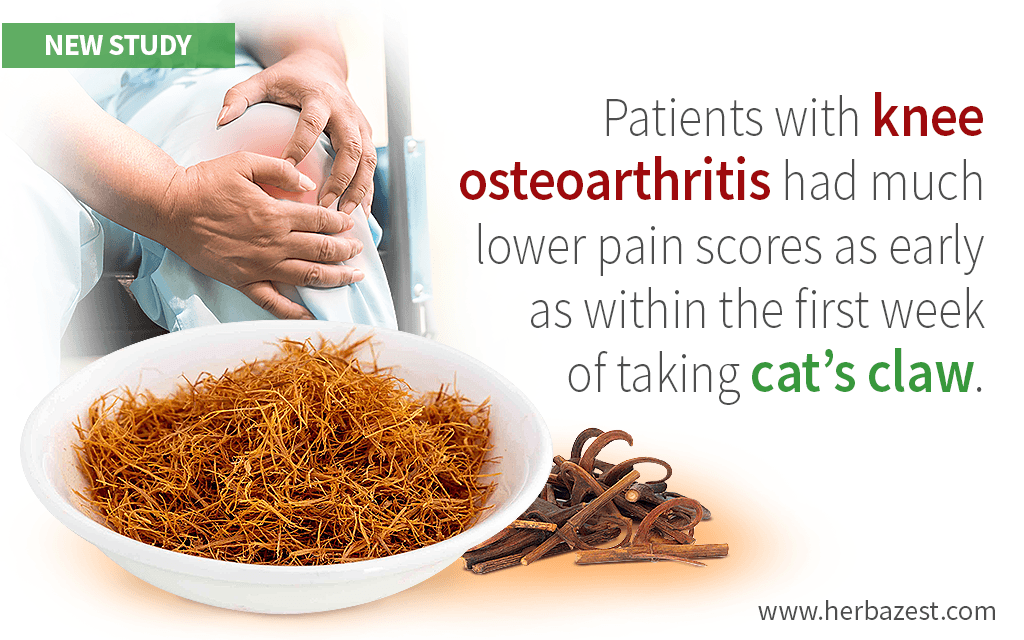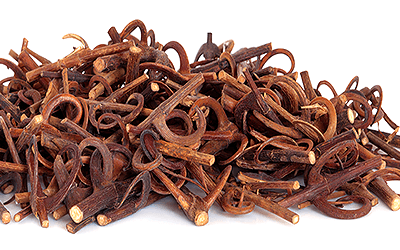Being an inflammatory condition, osteoarthritis is mainly treated with anti-inflammatory and pain-relieving medications. Unfortunately, these cause side effects, especially if taken long-term.1
Native to the Amazon rainforest, cat's claw has been traditionally used by indigenous people to treat chronic inflammation. This clinical trial was conducted to validate those folk uses and assess the effects of cat's claw on treating knee osteoarthritis.
The Study
There were 45 male patients with knee osteoarthritis participating in this trial. They were between the ages of 45 and 75. The trial was led by Peruvian researchers from the National University of San Marcos in Lima, Peru. They published their findings in the Inflammation Research journal.
The regimens consisted of 30 patients taking freeze dried cat's claw tablets (100 mg per day), while the remaining 15 patients were taking the placebo tablets. The study lasted for four weeks.
Participants underwent various medical exams, including blood tests and pain assessments. Researchers also conducted an in vitro study to compare the medicinal actions of two cat's claw species, Uncaria guianensis and Uncaria tomentosa.
The Results
After the first week of treatment, participants in the cat's claw group had considerably lower pain scores in comparison to those in the placebo group (more specifically, pain associated with exercise as well as patient and medical assessment scores).
Both treatment regimens were well tolerated and did not cause significant side effects.
Additionally, the in vitro component of this trial revealed that the antioxidant and anti-inflammatory properties were equally potent in both tested cat's claw species, U. guianensis and U. tomentosa.
What Does this Mean?
As demonstrated in this clinical trial, cat's claw can effectively treat osteoarthritis without causing major side effects typical to pharmacological treatments.
Researchers believe that the herb's anti-inflammatory properties are rooted in its ability to inhibit the production of tumor necrosis factor (TNF) and prostaglandin E2 (PGE2), both of which play a central role in inflammation.
Other herbs with potent anti-inflammatory properties include turmeric, ginger, cardamom, and garlic.
Sources
- Inflammation Research, Efficacy and safety of freeze-dried cat's claw in osteoarthritis of the knee: mechanisms of action of the species Uncaria guianensis, 2001
Footnotes:
- Cleveland Clinic. (2019). Osteoarthritis. Retrieved March 24, 2022 from https://my.clevelandclinic.org/health/diseases/5599-osteoarthritis







